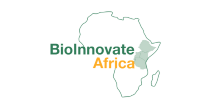
BioInnovate Africa is a regional science and innovation-driven initiative that is supported by the Swedish International Development Cooperation Agency (Sida) and implemented by the International Centre of Insect Physiology and Ecology (icipe) in Nairobi, Kenya.
The initiative supports scientists in Eastern Africa to link biological based research ideas, inventions, and technologies to business and the market. Scientists work collaboratively in a regional context, and involve interdisciplinary teams from academia, industry and government to co-develop solutions that address the region’s development priorities. Collaboration at the national and regional level, and creating links between research and industry, are some of the surest ways of translating scientific outputs into usable goods and services in daily life.
While funding biological based innovation projects remains the core activity of BioInnovate Africa, the initiative also supports development of policies and strategies that foster a sustainable bioeconomy in Africa.
Website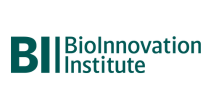
BioInnovation Institute Foundation is an international commercial foundation with a non-profit objective that accelerates world-class life science start-up innovation to benefit people and society. Through its three-venture building and acceleration programs – Bio Studio, Venture Lab, and Venture House, BII supports life science start-ups with knowledge, network, infrastructure, business development, mentoring, and funding of up to three million euros per project and 1,8 million euros per start-up. Since its inauguration in 2018, BII has awarded over 99 million euros to over 100 high-growth start-ups, that have in turn raised more than 500 million euros from other sources as of March 2024.
Website
The Cabinet Office is a ministry of the Japanese government. It assists the Cabinet with its policy planning and comprehensive policy coordination on important issues (economic and fiscal policy, science and technology policy, intellectual property strategy, and disaster management).
Website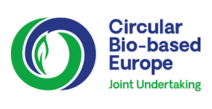
The Circular Bio-based Europe Joint Undertaking (CBE JU) is a 1 – 2 billion partnership between the European Union and the Bio-based Industries Consortium that funds projects deploying competitive, sustainable and circular bio-based industries in Europe. CBE JU aims to boost Europe’s competitiveness in the bio-economy sector, create new green jobs and offer alternative income sources to primary producers in regions, and address today’s environmental challenges.
Since 2014, CBE JU has supported over 190 projects focusing on developing innovative technologies and bio-based solutions for crop protection and fertilisation, plastics, textile, food, chemicals, packaging, construction and other sectors.
Website
The objective of the DBFZ Deutsches Biomasseforschungszentrum gemeinnützige GmbH is application-oriented research and development in the field of energetic and integrated material use of renewable raw materials in the bioeconomy. With partners from research and industry in the Global North and South we explore innovative techniques and their economic, social and environmental impacts.
Website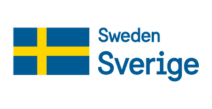
Wood is one of the few renewable building materials and the Embassy, together with several partners, has been working on commercial forestry and sustainable construction. At GBS, the Embassy presents the Woodlife Sweden exhibition which showcases projects that visualise how architecture, design and urbanism can help reduce the climate impact of buildings and products, and impact future development in line with the 17 Sustainable Development Goals (SDGs).
Project core partners: Swedish Institute, The GoDown Arts Centre and Gatsby Africa
Website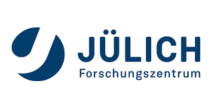
The Bioeconomy Cluster at Forschungszentrum Juelich aims to establish a thriving regional bioeconomy that leverages the strengths of the Bioeconomy Science Center (BioSC), the transformation hub BioökonomieREVIER to shape the innovation-driven transition in the Rhenish region and the EU project BIO2REG to support EU regions in the bioeconomy transition. The cluster integrates research, industry, education, and community engagement to foster circular bio-based solutions, promote regional economic resilience, and address global sustainability challenges. BioSC serves as a regional research and education hub, clustering activities from Forschungszentrum Juelich and three regional universities. BioSC’s systemic approach to bioeconomy fosters interdisciplinary research and education, enabling the development of innovative solutions that support the regional transition.
Website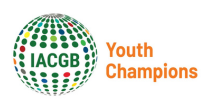
The International Advisory Council on Global Bioeconomy selected geographically diverse and aspiring young professionals to be Bioeconomy Youth Champions. Our aim is to foster the creation of a global and inclusive Bioeconomy Youth and Young Professionals Community that seeks to create connections, collaborate, and give a platform to the needs of the broader community.
Website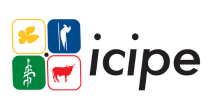
Headquartered in Nairobi, Kenya, icipe was established in 1970, to address this very paradox of insects and accompanying challenges. The Centre’s mission is to use insect science for sustainable development, to ensure food security and improve the overall health of communities in Africa by addressing the interlinked problems of poverty, poor health, low agricultural productivity and environmental degradation.
Since its founding, icipe has remained committed to developing and disseminating environmentally safe, affordable, acceptable and accessible tools and strategies to control insect pests and disease vectors. icipe’s mandate further extends to the sustainable conservation and utilisation of Africa’s rich biodiversity.
Website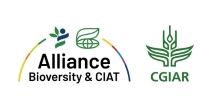
The Alliance of Bioversity International and CIAT delivers research-based solutions that harness agricultural biodiversity and sustainably transform food systems to improve people’s lives. To do so, the Alliance works with local, national and multinational partners across Latin America and the Caribbean, Asia and Africa, and with the public and private sectors. With partners, the Alliance generates evidence and mainstreams innovations in large-scale programs to create food systems and landscapes that sustain the planet, drive prosperity and nourish people in a climate crisis.
Website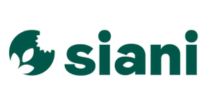
The Swedish International Agricultural Network Initiative – SIANI – is a global, open and inclusive network that supports and promotes multi-sector dialogue and action around our vision of sustainable, rights-based and inclusive food systems. SIANI is hosted at the Stockholm Environment Institute HQ in Stockholm, Sweden.
Website